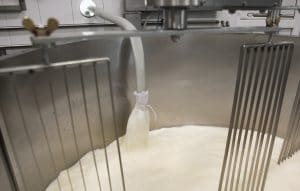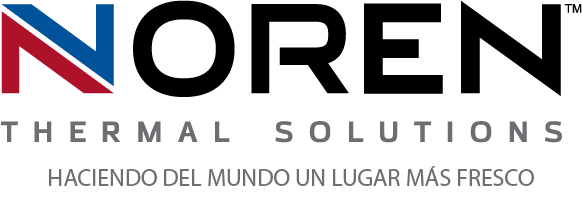 Over the last several decades, heat exchangers have helped streamline electrical cooling and several other essential thermal management processes for companies in all industries. For some industries, however, the impacts of this innovation have been more profound than they have in others. For example, while all companies can benefit from more efficient electrical cooling for their various technologies, companies in industries like food & beverage production have benefited even greater by utilizing heat exchangers for several core production processes. With the more natural and eco-friendly thermal management processes, heat exchangers can help food & beverage companies create safer and more efficient processes throughout their entire operations.
Over the last several decades, heat exchangers have helped streamline electrical cooling and several other essential thermal management processes for companies in all industries. For some industries, however, the impacts of this innovation have been more profound than they have in others. For example, while all companies can benefit from more efficient electrical cooling for their various technologies, companies in industries like food & beverage production have benefited even greater by utilizing heat exchangers for several core production processes. With the more natural and eco-friendly thermal management processes, heat exchangers can help food & beverage companies create safer and more efficient processes throughout their entire operations.
Streamlining electrical cooling equipment
Electrical cooling is an essential aspect for nearly every company’s operations. It’s the key to ensuring that technological applications of all types can continue operating without overheating, and maintaining electrical cooling solutions is an important part of optimizing those operations. With modern heat exchangers, sustaining efficient electrical cooling is a more natural and cost-effective process, as it eliminates the reliance on thermal management processes such as air conditioning and air compression. For companies in the food and beverage industry, this level of efficiency and safety are especially important, and heat exchangers have become an increasingly more valuable investment for them.
Creating safer cooling for powder and bulk foods
For companies that process powder and bulk foods, maintaining the quality and consistent operations of their technological equipment can be more challenging. The powdered nature of the products they process can pose a threat to certain types of equipment, including traditional cooling systems that rely on complicated machinery to consistently generate cold air. With heat exchangers, the process of keeping electrical systems cooled revolves around the consistent transfer of waste heat, which occurs within a tightly sealed loop. There are no complex mechanical parts for the powder to accidentally destroy, and the fluid within heat exchangers doesn’t have an opportunity to leak.
Making food production and packaging more eco-friendly
In addition to making electrical cooling safer and more efficient, heat exchangers have also helped transform nearly every step of the food and beverage production process. For example, the ability to transfer heat in a highly efficient and eco-friendly manner have given heat exchangers an advantage in helping companies streamline processes such as pasteurization, packaging, shipping, and more. For more information about how heat exchangers improve food and beverage production, call Noren Thermal Solutions in Taylor, TX, at 866-936-6736.







